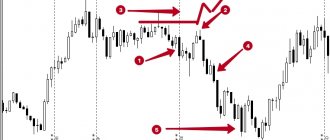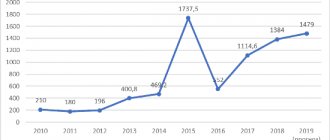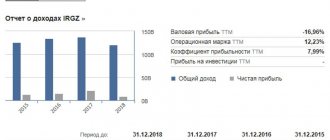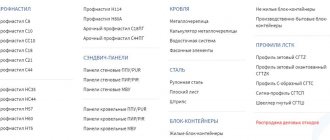Hello! I'm Dasha Ofitserova, I'm an author and editor. I also run the “Investorka” telegram, where I talk about triathlon and wine, and at the same time about buying shares on the over-the-counter market. I entered 20 IPOs in 2021, 21 IPOs in 2021, and another 10 pre-IPOs this and last year. If these acronyms are not very familiar, then the more familiar names are Zoom, Beyond Meat and Impossible Foods, SpaceX and Coursera.
All of these companies were private at the time the shares were purchased. Some of them are already traded on the stock exchange, some are not yet. I’ll tell you how investing in companies from Silicon Valley works for an ordinary investor with $100—for me.
How it all began
I've never invested before.
I thought it was difficult and not for me. Yes, there was a feeling that you could do something smarter with your money, but you had to figure it out. And figuring it out is always difficult. So if it weren’t for the new job, I wouldn’t have thought about investing for another 10 years and definitely wouldn’t have started a telegram channel about it. Two years ago I joined United Traders. We created media about investments, created landing pages and launched mailings. It was a little difficult for me to write about investments without my own experience, so I decided to try.
IPO Unity Technologies Inc.
Unity Technologies is a Danish-American video game software company based in San Francisco.
The company was founded in 2004 in Copenhagen under the name Over the Edge Entertainment by David Helgason (CEO), Nicholas Francis (Commercial Director) and Joachim Ante (Technical Director).
The company's main product is Unity, a cross-platform game engine used for creating and interacting with real-time 3D (RT3D) content. Creators, from game developers to artists, architects, automotive designers, filmmakers and more, use Unity to bring their content to life.
On August 24, 2021, Unity Technologies filed for a public listing with the SEC, electing traditional IPO underwriting.
Unity's technology is truly popular, as more than half of all top 1000 games in the App Store and Google Play Store were created using Unity. The company's clients include EA, Microsoft, Niantic, Sony, Tencent and Zynga.
In addition to being a game development platform, Unity also generates revenue from a service that helps companies manage and monetize their content.
Unity Technologies in numbers
Today, Unity is still unprofitable, but the situation is improving. For 2021, the company reported a net loss of $163.2 million on revenue of $541.8 million, down $131.6 million from 2021. However, revenue grew by 42%.
In the first half of 2021, Unity managed to reduce its losses by approximately $67.1 million compared to 2021, reporting a net loss of $54.1 million on revenue of $351.3 million.
IPO and pre-IPO
United Traders specializes in IPO and pre-IPO investments.
I decided to start with them. An IPO is the entry of a company onto the stock exchange. Before a public offering (IPO), the company's shares are not sold on the stock exchange; they belong to a limited circle of people - founders, employees, early investors. After the IPO, shares are traded on the stock exchange and are available to everyone. There is always a demand for shares of cool companies, but before the IPO, access to them is limited, after the IPO there are no restrictions. So after an IPO, the share price usually rises, and this is how investors make money.
There are two key points here:
- Choose exactly the company whose shares will rise in price.
- Be able to get these shares.
For investing in an IPO, the scenario is as follows:
- The IPO is designed to be successful for all parties. The company wants to raise more money. Early investors want to earn more. Underwriters (the banks that organize the placement) want to preserve their reputation. But nevertheless, there are companies whose shares fall after placement. And going into just such a situation, especially with a large sum, can be very unpleasant. Here you can partially rely on the choice of broker/investment company - they make a preliminary selection. I invest through United Traders, but you can use any services.
— Next you need to get these shares. This is the most difficult moment for an IPO. There are many people who want to make money from an IPO, but the number of shares is limited. Investors apply for one amount, but receive shares only for the less amount, the balance is returned. This is called allocation. If at the beginning of 2021 it was possible to receive 80-90% of the application, then at the end of 2021 - 40-50%, and in 2021 - 5-20%.
For investments in pre-IPO, a different scenario works:
— There are no problems here to get 100% of the shares, but you will have to wait longer. United Traders (I invest through them again) select companies that should hold an IPO in 1-3 years, but no one knows exactly when the company will go public.
— Choosing a company to invest in in the case of a pre-IPO is more difficult. The companies are not public and do not disclose many indicators. So it is very important to diversify - buy many different pre-IPOs with the expectation that some of them will work, some will not.
Distribution of shares
Before the IPO, Ozon's main shareholders were AFK Sistema and Baring Vostok with almost identical shares of 45.2% (66.58 million shares) and 45.1% (66.46 million shares), respectively. After placing their share, according to Ozon forecasts. should have decreased to 37.9% and amounted to 69.28 million shares for AFK Sistema and 69.16 million for Baring Vostok
These forecasts still did not come true - according to the results of the IPO, AFK Sistema retains 33.1% (68.82 million shares), and Baring Vostok - 33% (68.7 million), that is, the difference in the size of their shares remains minimal. Investors who entered the retailer's capital before the IPO received 15.7% (32.71 million shares), new investors - 18.2% (37.95 million). The total number of Ozon securities exceeds 208.2 million.
The price of Ozon shares has increased significantly in a matter of days
The placement of Ozon securities took place at $30 per share. After the IPO, there was a steady increase in their value, and by December 9, 2021, they rose to $47.99. The peak value, according to NASDAQ, occurred on December 3, 2021 and amounted to $49.33.
IPO in 2021: shares of Levi`s, Lyft, Zoom and Beyond Meat
From theory to practice.
Last year, I applied for $100 to every IPO (well, almost) that appeared on the United Traders platform. In total, I invested about $750 in 20 IPOs and earned about $1050 (+40%). Success of the year - Beyond Meat shares, artificial meat, +470%. That moment when you realize that $25 has suddenly become $143.
IPO calendar
Epic Failure of the Year: Sundial Growers Cannabis Stock, -79%. That moment when you realize that $26 can turn into dust.
IPO calendar
Here is a list of all the companies in whose IPOs I participated.
IPO calendar
Back in the middle of the year, I realized that it works. Towards the end, I decided that I needed to invest a larger amount, but in 2021 everything did not go according to plan.
Exceeding Expectations
Domestic online retailer Ozon has summed up the results of its public offering of shares (IPO). He released them on the American NASDAQ exchange on November 24, 2021.
According to the company's report, as part of the IPO, investors purchased 42.45 million of its securities. This number includes the sale of 37.95 million American depositary shares (ADS), 4.95 million shares in the form of a call option for the banks that organized the listing and the transfer of a stake to the Baring Vostok fund as part of a private transaction.
In total, Ozon raised $1.273 billion following its IPO on NASDAQ, excluding expenses. After deducting all commissions, Ozon will receive $1.2 billion.
Ozon earned more from the placement of shares than planned
Bloomberg praised the results achieved by the Russian retailer during the stock exchange placement. According to its experts, Ozon’s IPO can be considered the best for Russian enterprises over the past nine years (since 2011). The company even exceeded its own expectations from the IPO - as CNews reported, in mid-November 2021 it announced plans to raise up to $950 million from the sale of 30 million ADS and the transfer of another 4.5 million ADS in the form of options to the banks organizing the listing.
IPO in 2021: calendar
I expected that in 2021 everything would be as clear as in 2021: you submit an application, it is executed at some pleasant amount of interest, and you make a profit.
I looked at the results as percentages, extrapolated them to larger numbers and thought that everything was captured. But it was not there. At the end of February, markets began to fall. Somewhere in March it was time to buy shares that had fallen in price from the market (that’s what I did). Everyone forgot about the IPO for a while - companies postponed the placement to mid-to-late 2021 or to 2021 altogether.
I only started investing in IPOs again in May. As of mid-October 2021, I have invested in 21 IPOs. I applied for $13,000, of which about $1,400 went to the IPO, now they are worth about $2,400. Some IPOs are still waiting for the lock-up period to complete (usually it lasts 3 months).
Here is a list of those already completed:
IPO calendar
History of Ozon
Ozon was founded in 1998 and is considered the oldest Russian online retailer. Its origins included the publishing house “Terra Fantastica”,
Initially, Ozon was conceived exclusively as a web service for selling books and video cassettes, but over time it grew into a universal trading platform. At the beginning of October 2021, the number of sellers in Ozon exceeded 18 thousand. For comparison, for the same period of time in 2019 there were four times fewer of them - it is possible that the coronavirus pandemic contributed to such a significant growth. Because of it, by decision of Russian President Vladimir Putin, at the end of March 2021, the entire country was transferred to self-isolation.
Currently, the Ozon network includes about 30 sorting centers, eight fulfillment factories and more than 16 thousand order pick-up points in Russia. The retailer's website features over 6 million products, sorted into 24 categories.
- The best software for ensuring a company’s IT security is on the Market.CNews IT marketplace. With prices.
Elyas Qasmi
Share Short link
Pre-IPO: Coursera and SpaceX shares
A year ago, when it became clear that the popularity of investing in IPOs was growing and the percentage of applications executed was falling, I tried investing in pre-IPOs.
At the pre-IPO stage (one to three years before the IPO), the company is already quite large, but there is still no excitement. Then in October 2021, I went to the Postmates company; it was about to announce an IPO, but ultimately postponed the placement. Postmates' IPO is not expected yet, but I felt the buzz of investing in a pre-IPO and went into several more companies. Among the coolest:
- +60% DigitalOcean, IT company. A year ago their shares cost $13.8, now they cost $22.
- +51% Coursera, online learning. At the beginning of 2021, their shares cost $13.8, now they cost $21.
- +36% SpaceX, satellites, rockets, Elon Musk. In May 2021, their shares cost $250, now they cost $340.
IPO Palantir Technologies
Speaking of Palantir Technologies IPO, it will also become a public company through the standard direct listing route by filing its Form S-1 with the SEC on August 25, 2021.
Palantir was founded back in 2003 by Peter Thiel, Nathan Gettings, Joe Lonsdale, Steven Cohen, and Alex Karp and is headquartered in Denver, Colorado.
Palantir initially developed software for the US Intelligence Community (USIC) and the US Department of Defense to help intelligence and defense analysts analyze and process their data.
Over the years, the company has expanded and now offers enterprise big data analytics software to corporate clients as well.
In other words, it is a SaaS company that sells its data analytics platform to governments and businesses.
Palantir Technologies in numbers
Venture investors value Palantir at $20 billion. The company also received approximately $3 billion in funding.
Bloomberg reported that Palantir is on track to break even for the first time in its 16-year history and generate $1 billion in revenue this year. The company also managed to increase revenue by 24% to $739 million in 2019, according to Form S-1.
But the company's business still raises concerns among investors, since Palantir has not yet made a profit in 16 years of operation.
Nasdaq calendar
There is a section on the exchange website that provides up-to-date information on upcoming placements. Information is loaded on NASDAQ and NYSE. Link .
Before publishing and making changes to the company information sheet, the exchange carefully checks this information, so news may be published with a delay.
By going to the company card, we will see extended statistics with a set of key values:
- Ticker,
- Exchange,
- Number of employees
- Company contacts
- Control,
- Volume of shares placed and starting price.
There is similar information on the website of the New York Stock Exchange NYSE, so we will not focus on it.
Ipomonitor
Another service () that publishes news about IPOs. In addition to basic statistics, a wide range of data and a dashboard of the current IPO market are available to investors. The service is similarly paid: $29 per month or $290 per year.
List of services provided for investors:
- Control of the application for registration with the SEC and its support (tracking),
- Receive reports by email (customizable forms),
- Reports from ipomonitor analysts with explanations,
- Search all ipo,
- Full profile of each company that submitted an application.
Calendar from investing
The simplest calendar. The data is provided in a table that shows: date, company with ticker, exchange, planned IPO price and primary price.
The information does not shine with special analytics, so there is no need to rely on it. A smarter approach to finding ipos would be to use exchange sites where ipos are listed on the market.
Quantile consulting
A recently created project by a team of guys from Russia provides a unique system for analyzing upcoming IPOs. The developed mechanism analyzes 10 key parameters of the upcoming listing and, based on the results obtained, a conclusion on the asset is formed.
Website: . The subscription is paid, but the tariffs are more conservative than those of their Western counterparts.
After subscribing, you will receive access to a private part of the site, where information on upcoming ipos, including purchasing recommendations, will be available.
The generated analysis for the company looks like a booklet with detailed information.
report.









